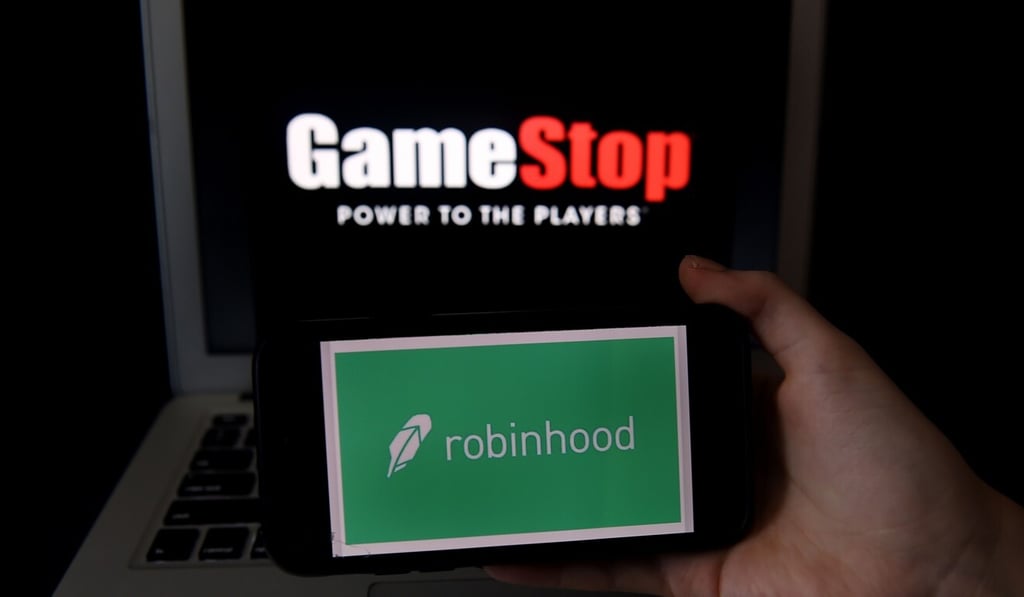Advertisement
Abacus | Robinhood shows social media should be feared by both the bad and good
- The GameStop short selling saga showed the power of social media in organising a ragtag group to take on Wall Street hedge funds.
- It might seem a triumph for both merry men and the common man, but this power poses a danger beyond the finance industry, writes Neil Newman
Reading Time:5 minutes
Why you can trust SCMP
1

POWER UP
2021 has been exciting and full of surprises, and it’s only the start of February! A huge dump of snow in Spain led to a severe shortage of out-of-season vegetables in Britain and even dropped flurries in the Sahara Desert; the retired shorts-clad rockers in AC/DC hit No. 1 on Billboard’s Hard Rock Songwriters chart; and there has been astronomical inflation in the price of pedigree puppies in Britain leading to a severe shortage of stray dogs to adopt. So we’re not short on anything to talk about over a beer in the pub – if only we could.
Covid-19 has wrecked people’s social lives, and the mood among my friends and family, particularly in Britain and the United States, is one dominated by boredom. Even the gamers who are usually inseparable from their souped-up PCs and favourite online games are running out of patience. Having perfected their skills in popular combat games such as Counter-Strike: Global Offensive (CS: GO) and spent hours glued to League of Legends competitions, they’re now back online with virtual arms fixed on a new target: the stock market.
Advertisement
This has led to the highly bizarre and potentially very dangerous practice of gamers messing with investment professionals, squeezing them until they choke on their shorts through free or low-cost trading platforms – the most notorious being the non-commission-paying “Robinhood”.

Advertisement
LITTLE JOHN WAS A BIT ON THE SHORT SIDE
Advertisement
Select Voice
Choose your listening speed
Get through articles 2x faster
1.25x
250 WPM
Slow
Average
Fast
1.25x
